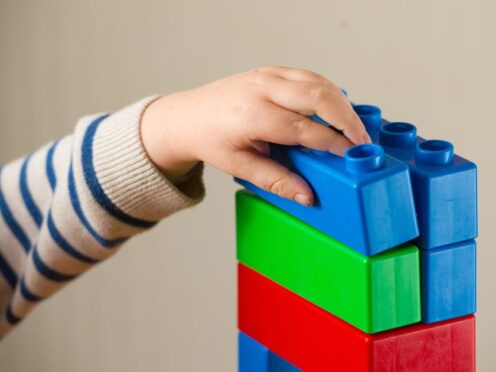A rise in child cruelty crimes in England since the pandemic must prompt politicians to commit to investing in early intervention services, a coalition of charities has said.
Crimes against children aged five and under, such as cruelty, assault and neglect, rose by 16% in the year to March 2023 compared to the year to March 2020, the NSPCC said.
The charity said it had compared Freedom of Information responses from 24 police forces in England which provided data consistently across those years.
The number of such crimes recorded by those forces rose from 5,372 in 2019/20 to 6,253 in 2022/23, the charity said.
Meanwhile, the NSPCC said its helpline refers around 11 babies and young children to agencies such as police and social services every day because of neglect and physical abuse.
The Children’s Charities Coalition includes the NSPCC, Action for Children, Barnardo’s, The Children’s Society and the National Children’s Bureau.
It is calling for a commitment from party leaders ahead of the general election for a cross-Government strategy to drive improvements for babies, children and young people growing up in the UK.
The murders of Arthur Labinjo-Hughes and Star Hobson “exposed a system that is letting down the most vulnerable babies, children and young people across the country”, said NSPCC chief executive Sir Peter Wanless.
A series of inquiries into the children’s social care system system in recent years included the Child Safeguarding Practice Review Panel review which followed the fatal abuse suffered by Arthur, six, and Star, 16 months.
Arthur was murdered in June 2020 by his stepmother Emma Tustin at their home in Solihull, West Midlands. His father Thomas Hughes, 29, was found guilty of his son’s manslaughter.

Star died at her home in Keighley, West Yorkshire, in September 2020.
Star’s mother Frankie Smith was jailed for 12 years for allowing her daughter’s death and her partner, Savannah Brockhill, was jailed for life, with a minimum tariff of 25 years, for Star’s murder.
Sir Peter, on behalf of the coalition, said: “Since the last general election, the pandemic and the tragic deaths of Star, Arthur and many others have exposed a system that is letting down the most vulnerable babies, children and young people across the country.
“These stark figures show how the youngest babies and children are continuing to pay the price for a failure to prioritise family help and the early intervention services that can be a lifeline to families and protect children before they come to harm.
“It is time for party leaders to turn this around by committing to invest the political will and national wealth urgently needed to ensure every child grows up with the chance to thrive.”
Last year the Government announced a sweeping shake-up of children’s social care, including a commitment to seeing families with vulnerable youngsters given extra support before they reach crisis point.
The plan included early interventions for families with addiction, domestic abuse or mental health problems to help them stay together where possible.
But campaigners argued that the £200 million over two years for the plan in England fell far short of what was required and called for a greater focus on the issue at the heart of Government.
A spokesperson for the Department for Education said: “Any instance of child cruelty is abhorrent, and we are reforming the entire children’s social care system, backed by an initial £200 million, to improve services from early intervention to safeguarding in the most serious cases.
“We are investing over £1 billion over three years to improve early help services from birth to adulthood, including through our Family Hubs and Holiday Activities and Food programmes, and testing new approaches to support for families through our Families First for Children pathfinders, so more families can stay together wherever possible.”
